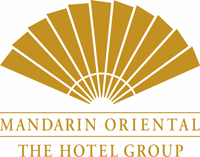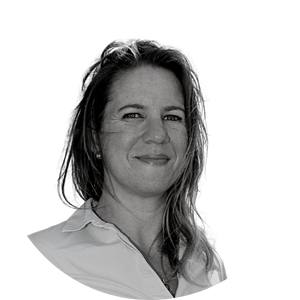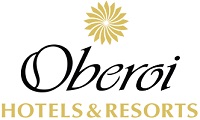
INTERVIEW WITH EMILIA DELGADO, HEAD OF THE MANDARIN ORIENTAL HOTEL GROUP'S MOVE AHEAD PROGRAMME
The Senior Director of Learning & Development for Mandarin Oriental Hotel, who designed the training programme for the group's supervisors, explains how it works and its benefits |
 |
INTERVIEW WITH EMILIA DELGADO, HEAD OF THE MANDARIN ORIENTAL HOTEL GROUP'S MOVE AHEAD PROGRAMME
The Senior Director of Learning & Development for Mandarin Oriental Hotel, who designed the training programme for the group's supervisors, explains how it works and its benefits |
Category: Worldwide - Careers
- Interviews and portraits
- Career - Interviews
Interview made by Vanessa Guerrier-Buisine on 2023-11-29
 Emilia Delgado, Senior Director of Learning & Development at Mandarin Oriental Hotel Group
Photo credit © Mandarin Oriental Hotel Group
Emilia Delgado began her career with Mandarin Oriental Miami in 2004, as Spa Manager for several years. She realized the importance she attached to the training and development of her staff. She left the spa to join the human resources department in 2007, and has been working in training and development ever since, culminating in the role of Senior Director of Learning and Development for all the group's hotels. She remains based at the Mandarin Oriental Miami, and travels the world as the need arises to roll out new training courses.
From the moment they join the group, with MOve In, the induction programme for all employees, to the possibility of completing an MBA, Mandarin Oriental Hotel Group (MOHG) employees have access to tools designed to help them develop their skills. “They get their job skills training and if they want to enter into the leadership team, we recommend this supervisory development program and then there's move up, move forward. We even offer an MBA in partnership with RMIT University in Melbourne, explains Emilia Delgado.
A programme tailored to new managers
Instigated by Jacqueline Moyse, Vice President of Organisational Development, the MOve Ahead Programme comes before the MOHG leadership training programmes, MOve Up and MOve Forward. “She had a vision to continue growing our leadership development programs,” explains Emilia Delgado.
“MOve Up is for initially for junior management team and supervisors and then MOve Forward was for our senior leadership team. But she realized that the first-time supervisors and leaders didn't have that much experience, so they needed just a different content. And so then we decided to create another one called MOve Ahead,” she continues. “The objectives really are to make to help them make that transition from being a line colleague to being a leader. They went from being a peer to being the boss, and that's sometimes one of the hardest changes people have to make. So we give them a lot of tips on how to transition that,” explains Emilia Delgado. So we had to put together a programme that was “not too time-consuming”, adopting a half-day training format.
From supervisor to manager
To join the programme, candidates must “Be a supervisor or a first-time manager. And they fill out an application that has about five questions, asking them why do they want to join? What do they want to learn? And then we ask them to give us their latest performance review. Normally, the L&D (learning & development) managers discuss this with the executive Committee or the general manager to figure out who should go because it should be about 6 to 12 participants only,” explains the programme manager.
“One of the main goals also is to help them develop a growth mindset. And so just to help them get already very early in their leadership career to know that they're always going to have to learn and grow, and they always should be open to feedback and be willing to fail.”
All these ambitions require supervisors to have a core of eight skills: personal skills, humility and self development; team management skills, collaborative skills and talent development; and results-related skills, customer focus, driving results, directing work, combined with functional and technical skills.
Training is differentiated for supervisors and managers, for whom the focus is more strategic. Resilience is added to personal skills, and “planning and alignment” replaces the notion of directing work. “If they want to move up to be manager, that's what they need to start working on ‘plans and aligns’. Because supervisors tend to focus on just the day, right or the shift. And if they want to move up, they need to focus on that,” explains Emilia Delgado. “They really get to go deep into these competencies,” she continues, reminding us that it's not about learning definitions, but identifying good and bad practices.
Six areas of focus and the AHEAD method
“We have six topics in total for the six months. So that's usually how we like to spread it apart is one topic a month: self-awareness, communicating, giving and receiving feedback, organizing and prioritizing, collaborating and lastly self-development,” explains the programme leader. “These are all brand-new concepts to them. They don't learn this in school, or they didn't learn this officially from their manager,” she adds.
MOve Ahead is based, for each theme, on the AHEAD methodology: Arrange, Huddle, Expand, Action and Document. The first step is to get organized to complete their exercises and discuss them with their managers. This allows the managers to discover the benefits of the programme, and to draw inspiration from the methods taught. The second stage is the meeting, with trainers, guests and interactive learning manuals.
This is when the “Expand” part comes into play, a creative and innovative part of MOve Ahead, inspired by an astronaut. For each module, participants have to create a one-page infographic representing what they have learnt, in their own words and visuals, to be easily found and used once the course is over.
The Action phase involves 'homework' in the form of questionnaires, videos, and tasks to be completed on MyMO, Mandarin Oriental Hotel Group's social networking platform, always accompanied by a discussion and exchange with their superior.
Finally, the last element that has helped to structure this programme is documentation. Participants keep a logbook, in which they are invited to record personal thoughts that may accompany their personal development.
Each stage is evaluated using gamification, “with every topic, they can earn points. For example, in the Action phase, they can get zero points if they submit late as an example or on time they get 10 points and if they turn it in before they can get 20 points”, explains Emilia Delgado. Time management, the pursuit of objectives, professionalism, and creativity are just some of the skills stimulated by this marking system. Once they have completed the entire course, they are awarded MOve Ahead certification.
A programme rooted in the reality of the field
Emilia Delgado is very committed to the development of her teams, and considers it essential to visit the hotels to observe the effects of this new programme. “I was just in Malaysia, and I had the opportunity to spend time with the hotel colleagues and see the growth there. Then I get to visit a lot of our properties and run workshops or run training programs. So I do still see it face to face, and I think that's really valuable part of my role; to be on the front lines and understand what the teams are going through”.
Developing throughout your career
Although the programme is still too new to be able to identify examples of career development, the results of the MOve Up and MOve Forward programmes are very encouraging. “In all the hotels really where they've gone through move up and move forward, they have executive Committee members who have gone through, MOve Up and MOve Forward”, she adds. This team development philosophy is shared throughout the Mandarin Oriental group.
“My advice always actually is to use blended learning to maximize growth. What I mean by that is to not just take a class or not just read a book. They should look at a blended learning approach. So, for example, take a class and then try it or do something, and ask for feedback. My managers love to learn financial acumen, and so they would need to improve their business insight and their how to read a profit and loss statement… So usually in the past, they used to just take a class online on how to read a financial statement, and that's not enough. I would tell them, take the online course, that's step number one, but then you need to be able to present your profit and loss statement. That means you have to do the work itself, understand every line, the moment you teach it to somebody else, that's when you've really maximized learning. And then the third thing is to ask for feedback or a mentor to help you because if you learn something completely by yourself, you're not getting the feedback that you might need, that you might not realize you need so”, she concludes when asked what advice she would give to a young person wishing to pursue a career in the luxury hotel industry.
|
|






